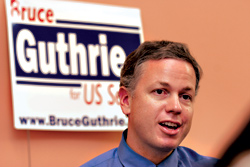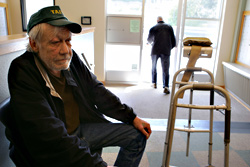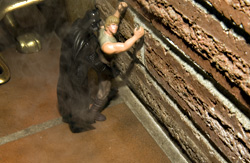Two and a half years after a so-called alcohol impact area was overlaid Pioneer Square, a new city report says the initiative has not met goals. The idea behind the ban on sale of inexpensive fortified wine and malt liquor at Pioneer Square stores is to keep homeless people from loading up on cheap booze and causing trouble on the streets.
“Pioneer Square continues to be a ‘hot spot’ for alcohol-related activity,” says the report by the city’s Department of Neighborhoods. It cites police and fire department response data. “It would appear the results are mixed, at best.” The report comes four months after the Seattle City Council approved creating new AIAs, as they are called, in Belltown, Lower Queen Anne, parts of Capitol Hill, the Central District, and the University District. The new areas will go into effect following expected approval by the state Liquor Control Board. Oddly, the new report shows that incidents went down in parts of Belltown and much of Capitol Hill last year, well in advance of the forthcoming ban.
Seattle fire data on alcohol-related medical calls in Pioneer Square were up 30 percent since the ban went into effect in 2003, compared to the previous two years without the ban. A spokesman for Seattle Mayor Greg Nickels says that argues not for ditching the AIA but for more restrictions. “We’re proposing a larger area for the alcohol impact area in Pioneer Square,” says Marty McOmber.
The mayor’s office had no comment on decreased problems in other parts of townwhether that negates a need for AIAs in those areas. An AIA bans the sale of beers like Colt .45 and Schlitz Malt Liquor, as well as “wines” like Night Train. Citizens can still buy high-alcohol microbrews at stores in these neighborhoodsat much higher prices, of course.
“I don’t think anyone expected the area alone to solve all the issues in Pioneer Square,” says City Council member Tom Rassmussen, a supporter of the AIAs. “It’s just one tool.” Rassmussen says the city needs to focus more effort on drug and alcohol treatment for street drunks and on finding them housing somewhere other than the already-full shelter system.
The new report is at variance with an earlier city report that labeled the Pioneer Square experiment a success.







